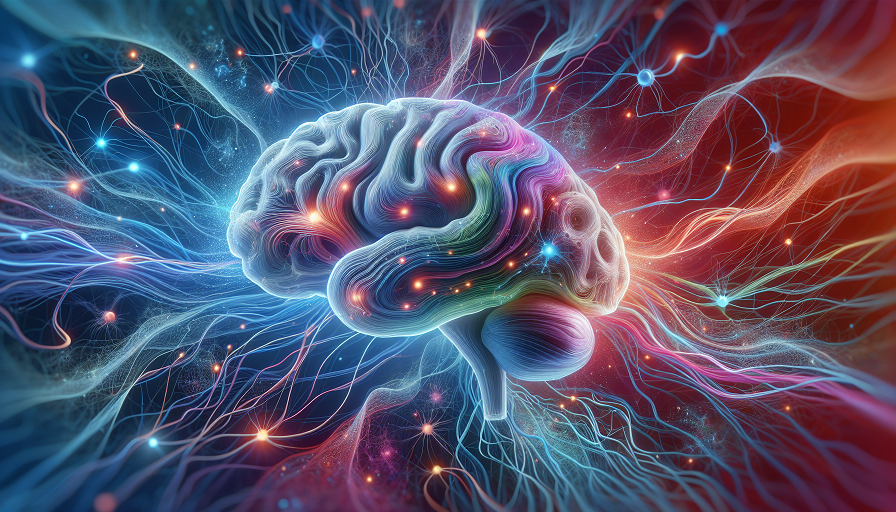
Short answer: Yes – being adequately hydrated supports attention, processing speed, and working memory. The gains are modest but noticeable for many people, while even mild dehydration (around 1–2% of body weight) can slow reaction time, increase mental fatigue, and worsen mood, all of which make focusing harder.
Contents
Why Hydration Matters for the Brain
Your brain is highly sensitive to shifts in fluid balance. When you’re underhydrated, blood osmolality rises and the body releases vasopressin to retain water. That state alters neuronal excitability and can constrict cerebral blood flow just enough to affect thinking – especially on sustained attention tasks.
- Neurotransmission: Water balance influences ion gradients and neuronal firing, which underpin attention and working memory.
- Energy delivery: Adequate plasma volume supports glucose and oxygen delivery to active brain regions during demanding tasks.
- Mood & arousal: Small hydration deficits elevate perceived effort, irritability, and headache – indirect drags on focus.
- Sleep & clearance: Good daily hydration supports normal sleep and glymphatic clearance at night, which helps you start the next day sharper.
What Counts as “Enough”?
There is no one-size-fits-all number. Body size, climate, activity, caffeine, and diet all change your needs. A practical target for many adults is to get most fluids from water and unsweetened beverages and aim for light-straw urine by midday. Many health organizations suggest roughly 2–3 liters of total fluid per day (from all beverages and foods), with more on hot or active days. If you’re smaller, sedentary, or in cool weather, you may need less; if you sweat heavily, you’ll need more.
What the Research Shows
Across controlled studies, mild dehydration of ~1–2% body mass often impairs attention and increases mental fatigue. In heat or during/after exercise, effects are larger and more consistent. In thermoneutral settings at rest, results are mixed: some trials show small attention or working-memory benefits after drinking, while others find mood improves more than objective test scores. Translation: hydration won’t turn an all-nighter into genius hour, but it removes a common bottleneck to clear thinking.
Water vs. Electrolytes
For desk work and light activity, plain water usually suffices. Electrolyte drinks are most useful when you sweat a lot, exercise for an hour or more, or work in heat – times when you lose sodium along with water. For routine cognitive work, choose low- or no-sugar options; heavy sugars can spike and crash energy, undermining focus.
A Practical Focus Routine
- Prime the morning: Have 300–500 mL of water within an hour of waking to end overnight fluid restriction.
- Steady sips, not chugs: 150–250 mL every hour or two during work periods keeps plasma volume stable without constant bathroom trips.
- Pair with meals: Drink a glass with each meal and snack; foods like fruit, vegetables, oats, and soups add meaningful water too.
- Pre-task micro-hydration: 150–250 mL 15–20 minutes before a demanding meeting, study block, or test.
- Mind your stimulants: Coffee and tea contribute to hydration overall, but late-day large servings can impair sleep, which hurts focus more than any drink helps.
- Use cues: Keep a marked bottle at your desk; set calendar nudges at natural breaks rather than mindless sipping.
Signs You’re Underhydrated
- Thirst, dry mouth, or a mild headache.
- Darker urine (think apple juice vs. pale straw).
- Sleepiness, irritability, or heavier perceived effort during tasks.
- Cramping or dizziness during activity, especially in heat.
Limits and Caveats
More water is not always better. Overhydration can dilute blood sodium (hyponatremia), which is dangerous – most common in endurance events combined with high water intake and low sodium. For typical office days, simply aim for steady, moderate intake and let thirst, urine color, and context guide you. Also remember that hydration is only one piece; sleep, nutrition, and workload design (breaks, light exposure, task batching) have larger effects on focus.
Bottom Line
Hydration won’t replace good sleep or smart work habits, but it is a low-friction lever for mental clarity. Keep fluids steady across the day, add electrolytes when you sweat, and avoid late-day stimulants that sabotage sleep. You’ll remove a preventable source of mental fog and give your attention systems a fair shot at performing well.

